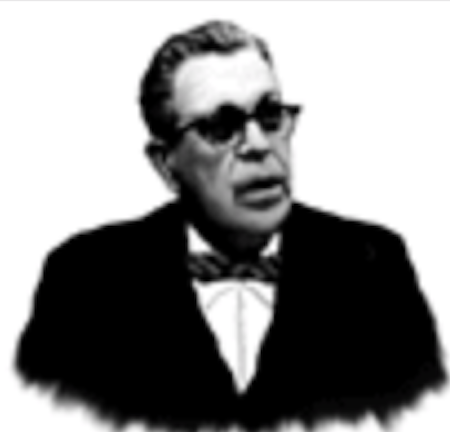Percy Spencer
Percy L. Spencer is best remembered for creating one of the most iconic kitchen appliances, the microwave oven. The inventor was born on July 9, 1894 in Howland, Maine. He dropped out of grammar school when he was 12 years old to work in a weaving mill and joined the U.S. Navy at 18 as a radio operator. During his shifts he taught himself calculus and physics from textbooks.
After being honorably discharged from the U.S. Navy following World War I, Spencer began working at Raytheon, using his expertise to rise to success in the radio and vacuum tubes department. During World War II, he and his coworkers produced large amounts of radar equipment. One such piece of equipment was the compact cavity magnetron, a high-powered vacuum tube that generates microwaves. It was used as a radar system in World War II to detect enemy planes and submarines. Though Spencer did not invent the magnetron himself, he did develop a system to mass produce the machine, increasing and improving the U.S. military’s technological capabilities. For his contributions, he received the Distinguished Public Service Award from the U.S. Navy.
Following the war, Spencer was in one of the Raytheon laboratories when he approached a magnetron and noticed that the chocolate bar in his pocket had started to melt, which he didn’t notice at the time was due to the radar’s microwaves. He decided to experiment with un-popped popcorn. He held the bag next to the magnetron and watched as the kernels turned into hardened, miniature white clouds.
Spencer and Raytheon put much effort into developing the microwave oven to be used for cooking purposes and filed for a patent on October 8, 1945. He was later awarded the patent on January 24, 1950. The first commercial microwave oven was called “Radarange,” marketed in 1947. It was a different sight from today’s microwaves, costing $3,000, weighing about 750 pounds and standing 6 feet tall. It took about 20 years before a more convenient-looking microwave was ready for home-use.
Spencer obtained over 100 patents and retired from Raytheon, passing away on September 7, 1970. He was inducted into the Inventors Hall of Fame in 1999.


